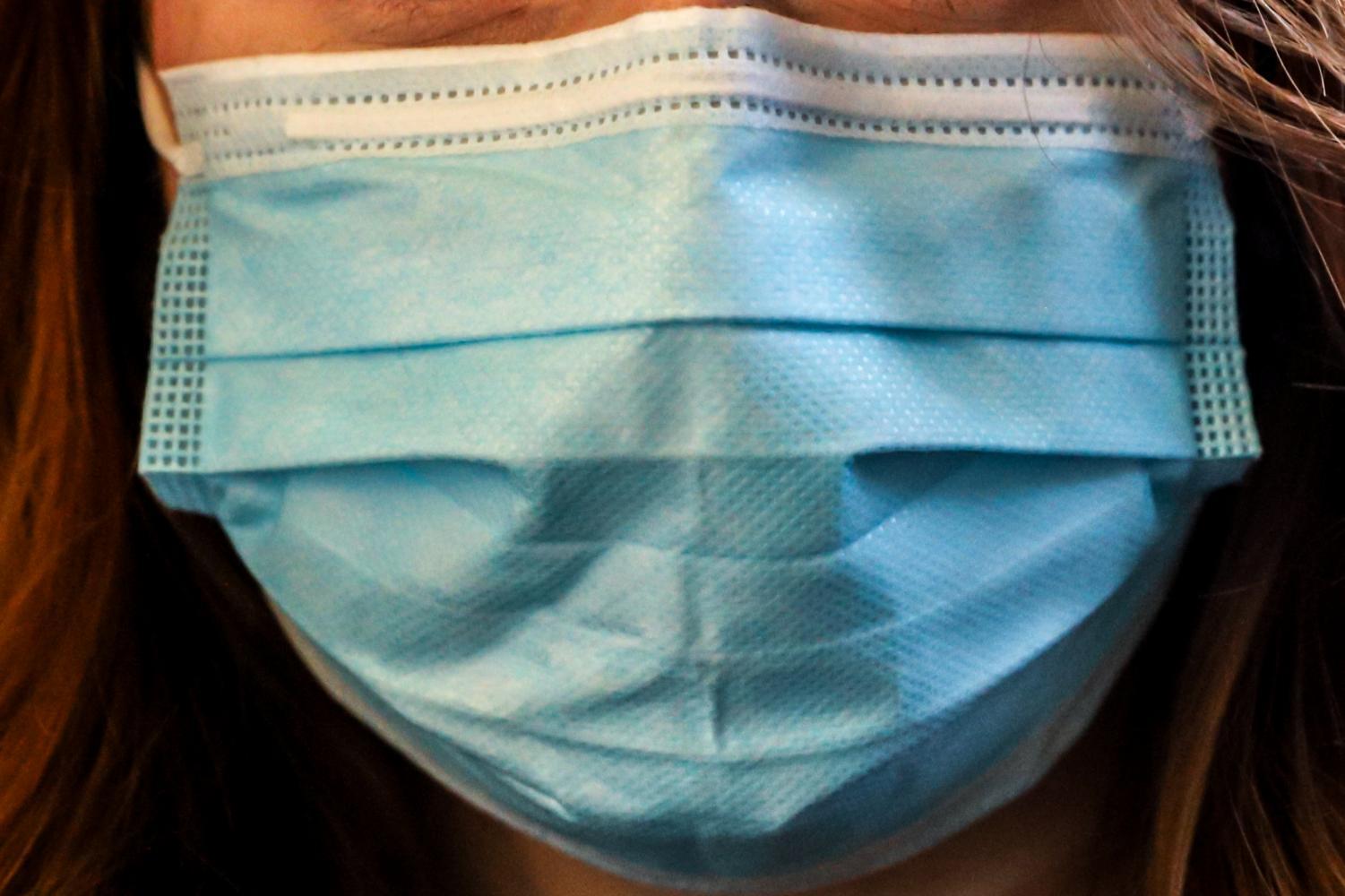‘Kind of unnerving’: Student health care workers brave virus threat on the job


East End EMTs are given one N95 mask per day and asked to reuse it.
When paramedic Sarah Flenders first started responding to potential COVID-19 patients, she said the feeling was comparable to assisting a cardiac arrest patient.
“That feeling while driving — knowing things aren’t going to be good and not knowing how the scene’s going to be and your heart is racing — I kind of felt that in the beginning when going on calls,” Flenders, a senior emergency medicine major, said. “It’s kind of unnerving, but it’s fading with time.”
Many students packed their belongings and moved home when Pitt announced that all classes would be moved online indefinitely beginning March 23 because of the risks associated with COVID-19. According to Pennsylvania Department of Health data, Allegheny County currently has 419 cases, while there are 7,016 cases statewide. But other students, like Flenders, remained in Pittsburgh and are still working in positions with a whole new set of risks and regulations, while also balancing a full course load.
One of the largest concerns in treating coronavirus patients nationwide is a lack of personal protective equipment like N95 respirators, gowns and gloves. According to the World Health Organization, the shortage of PPE represents one of the gravest threats in fighting the coronavirus pandemic. This shortage could make health care workers, and therefore their patients, more susceptible to the virus. In Ohio and Minnesota, state health departments reported that nearly 20% of all infected people are health care professionals.
Pitt’s Swanson School of Engineering stepped up in fighting Pittsburgh’s PPE shortage. More than 50 engineering, chemistry, physics and biology labs donated excess PPE to UPMC last Monday, and others are working on developing masks and shields that can be 3D printed on a mass scale.
Dolan Edinboro, a senior molecular biology and sociology major, works as a part-time EMT at Ross/West View EMS and volunteers at the Bellevue Volunteer Fire Company, both about 15 minutes north of Oakland. He said most of the equipment he has to wear while working has remained the same, except for masks, but he questions when they will run out. The Centers for Disease Control and Prevention released new guidelines last week to extend the use of N95 respirators, which includes wearing them for “repeated close-contact encounters” with different patients.
“Where I work is very aggressive in making sure we have all the right equipment, but I wonder if we’re putting on this equipment all the time, when is it going to run out?” Edinboro said. “We use the same masks for the same shift now because the CDC is saying that’s what we have to do.”
Flenders said while she isn’t particularly concerned about a lack of PPE yet, she is worried about the coming weeks. She said hospitals replacing ambulances’ supplies isn’t always happening fully, because hospitals lack the supplies themselves.
“We have kind of a deal with the hospitals that if we use a surgical mask on a patient, the hospital will restock us. It’s one for one,” Flenders said. “Now, the hospitals don’t always have it, so we’re not always replaced one for one.”
Flenders said EMTs are given one N95 mask per day and asked to reuse it. She said they have also replaced isolation gowns with rain ponchos.
“All employees are given one N95 mask per day, whereas you typically use one per patient,” Flenders said. “The CDC is saying we can clean and reuse it, which personally I think is just a ‘doing the best we can’ kind of thing.”
Beyond protecting themselves, some students are also concerned about infecting their roommates. Edinboro said he is worried for his roommates who are put at greater risk due to living in the same house as him.
“It’s not a risk they accepted willingly,” Edinboro said. “They had no idea that this is something they would be exposed to when we decided to live together.”
Paige Ottaviano, a junior psychology major and rehabilitation aide at UPMC St. Margaret, a hospital in Aspinwall about 20 minutes east of campus, said she has changed her habits to try to protect her roommates.
“When I go home, I immediately shower and put my clothes in the washing machine,” Ottaviano said. “I’m putting other people at risk, so it’s a difficult thing to go back and forth in your mind about. If I’m infected, they would probably also get it at that point.”
Libby Forcade, a junior psychology major, is most concerned about the health of her patients. Forcade, a student behavioral associate at Western Psychiatric Hospital, works primarily with geriatric patients, one of the populations most at risk for contracting coronavirus.
“I work with patients who are very, very vulnerable,” Forcade said. “Knowing that I could put them at life-threatening risk is terrifying.”
On top of added responsibilities at work, these students are still responsible for finishing out the school year. Forcade said balancing the responsibilities of being a student and behavioral associate is difficult, especially because she feels like she can’t take advantage of the option to convert her courses to satisfactory/no credit at the conclusion of the semester as a pre-health student looking to attend graduate school.
“Having an assignment due at [4 p.m.] takes away some of the focus and attention I could put into the job,” Forcade said. “It’s difficult for pre-health students to switch to a pass/fail option. It’s not worth the risk of having to retake the class.”
Edinboro also said he isn’t choosing to convert his classes to satisfactory/no credit because he plans to attend medical school. He said if Pitt would completely transition to pass/fail it would make his life as a health care worker much less stressful.
“There hasn’t been any guidance from med schools about accepting pass/fail if it’s optional, so I don’t feel comfortable taking that option,” Edinboro said. “It would make it easier for science students if the University went across the board pass/fail, and it would make the decision to actually provide health care and support the community much easier.”
Despite all the outside pressures, Edinboro said he enjoys working as an EMT and giving back to the community.
“This is a job I really enjoy and a community I’ve become attached to,” Edinboro said. “While there’s risk, I’m appreciative to be in a position where I can give back and help people. If I wasn’t able to, it would drive me nuts.”
Recent Posts
SGB addresses concerns about ICE presence on campus, hears SJP lawsuit against administration, approves governing code bill
At its weekly meeting on Tuesday at Nordy’s Place, Student Government Board heard concerns about…
ACLU of Pennsylvania sues Pitt over SJP suspension
The ACLU of Pennsylvania filed a federal civil lawsuit against the University of Pittsburgh and…
Marquan Pope: The ultimate shark
One of the most remarkable things about sharks is that an injury doesn’t deter them.…
Who Asked? // Do we really get a summer vacation?
This installment of Who Asked? by staff writer Brynn Murawski mourns the seemingly impossible perfect…
Notes From an Average Girl // Notes from my junior year
In this edition of Notes From an Average Girl, senior staff writer Madeline Milchman reflects…
Meaning at the Movies // The Power of the Movie Theater
In this edition of “Meaning at the Movies,” staff writer Lauren Deaton discusses her love…

